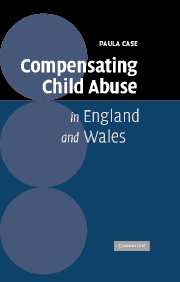4 - Damage, Causation and Quantum
Published online by Cambridge University Press: 19 July 2009
Summary
Introduction
It has been suggested that in the United States, the preferential legal treatment accorded to abuse claimants has resulted in the courts applying a ‘broad brush’ approach to proof of damage and causation. Once the wrong has been proved, the courts tend to assume that the abuse is responsible for all of the claimant's psychological problems without applying the strict rules of causation which would often otherwise spell the end of the claimant's case. Whatever the experiences of the US, the requirements pertaining to the proof of damage and causation may very well constitute insurmountable obstacles for the abuse claimant in England and Wales. It should be noted, however, that matters pertaining to proof of damage and causation in this type of litigation have rarely surfaced in our courts because the claim has been disposed of on prior issues of limitation or liability, leaving other issues unexposed and unexplored. The potential concerns arising out of the damage/causation inquiry are myriad, and the lack of legal authority on these issues specific to abuse claims makes reference to the experiences of other similar jurisdictions expedient for the purposes of speculating how these issues might be played out in the future. For example, it is frequently the case that abuse claimants have suffered a number of traumatic events apart from the abuse which is the subject of the litigation, and such complexity causes intractable problems when assessing causation and quantum.
- Type
- Chapter
- Information
- Compensating Child Abuse in England and Wales , pp. 199 - 243Publisher: Cambridge University PressPrint publication year: 2007

